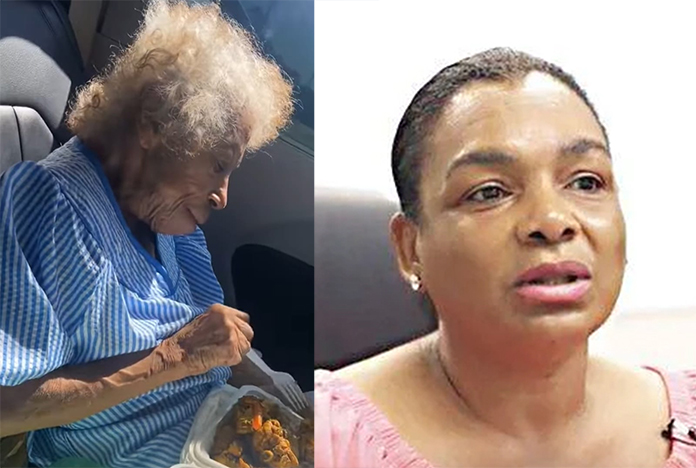To the Editor Bahamas Press

Dear BP,
Recent reports in the media have highlighted serious concerns about elder abuse in The Bahamas. It’s crucial that we, as a society, are aware of these issues. For instance, the Ministry of Social Services has reportedly launched an investigation into allegations of elder abuse and financial exploitation at the ‘Home Away from Home’ senior care facility in Grand Bahama. The investigation follows claims that the facility’s administrator exploited elderly residents by gaining control of their homes, real property, cars, NIB benefits and life insurance policies.
Health and Wellness Minister Dr Michael Darville has acknowledged the gravity of the situation and emphasized that the government is taking significant steps to address the care of older people. This includes expanding geriatric services and improving the overall care of elderly citizens, a promising sign in the fight against elderly abuse.
Unfortunately, the abuse of vulnerable and elderly persons appears to be endemic in Bahamian society. In my experience, I have seen the children of many successful Bahamians literally “fling” their frail parents into the government’s senior facility and old folks’ homes. Aged parents who have scrounged and sacrificed for their children’s welfare and professional education are just thrown away like so much garbage. These elderly individuals, who should be enjoying their golden years, are instead subjected to neglect and mistreatment. In times of critical need, aged parents suddenly become a nuisance to their children’s social lives, and many act as if they have no loving, nurturing parents.
Family homes which were free and clear of debt, having been refinanced to finance some business venture or extravagant lifestyles of their ungrateful children, now lay derelict and uncared for, just as the parents are. Vulnerable parents diagnose my children as having dementia when there is a myriad of reasons for the changed behaviour. In fact, according to the 2023 statistics, dementia rates in the Bahamas are comparable to other Caribbean nations at about 5.9% as opposed to other European countries, where it averages 42%. So, a specialist diagnosis is required.
Consequently, in 2016, a PLP Government moved to address many of the abuses perpetrated against the nation’s elderly by approving the ‘Rationale for Proposed Legislation for Older Persons in the Commonwealth of The Bahamas’ for draft legislation in late August. The only thing remaining to be done was for the Office of the Attorney General to prepare the rationale for the Draft Legislation for the Care and Protection of Older Persons Bill.
The then-Minister of Social Services and Community Development, the Hon. Melanie Sharon Griffin, said the legislation—once drafted, adopted, and enacted—would ensure that persons who abuse the country’s elderly would “come under the long arm of the law.” Mrs Griffin’s announcement came as the country commemorated International Day for Older Persons and Older Persons Month, both observed annually in October.
The announcement, made on September 22, 2016, at the Ministry’s offices, also came as the National Council on Older Persons and the country prepared to pay tribute to the late Mrs Juliette Walker-Barnwell, who had served as Chairperson of the National Council on Older Persons until her passing. Mrs. Barnwell—herself a Senior Citizen—was a “driving force” in researching and preparing the information that eventually resulted in the draft document
At that time, the Minister of Social Services and Community Development, Hon. Melanie Sharon Griffin, noted that the Cabinet had approved the preparation of Draft Legislation for the Care and Protection of Older Persons to be facilitated by officials in the Office of the Attorney-General. Other Bahamians included in the initiative were Phedra Rahming, Under Secretary, Ministry of Social Services and Community Development; Charles Sawyer, Deputy Chairman, National Council on Older Persons; and Lillian Quant-Forbes, Senior Deputy Director, Department of Social Services, Ministry of Social Services and Community Development.
In the newspaper report of the event, its advocates noted that “Through the experiences of Social Services over the years and caring for the elderly, we have discovered that there are many concerns with regards to the care and protection and welfare of the elderly, and so we hope to accomplish, first of all, legislation, laws, that speak to this welfare and care and protection and legislation that will let persons know — under penalty of law – that if they abuse our elderly, they will come under the long arm of the law. It is important to us for them to know that,” Mrs. Griffin said.
“We hear from Senior Citizens how their National Insurance Benefits are sometimes being taken advantage of by some family members and sometimes caregivers, and of course, we have the neglect of the elderly where some families and caregivers are leaving them home alone. The report noted, “The elderly are a significant part of our community, and we must have specific legislation to ensure their well-being and protection”. These initiatives were proposed in 2016 to address this vexing problem. The date is essential because, in 2017, the Bahamian people chose to delay any prospect of national development by changing the government. As usual, the FNM’s stop, review, and cancel policies appeared, and this draft legislation may have been dustbinned or burned.
This probably explains that although the Carey family saga occurred in the heart of FNM country, not one of its three GB parliamentarians has uttered a rebuke or opprobrium. This inaction from our elected officials underscores the need for public support and advocacy to push for the enactment of the proposed legislation.
If you detect a theme here, that is because there is a theme here. The FNM does not care about the welfare of all Bahamians, only their friends’ families and lovers. They cancel school, clinic, and mini-hospital initiatives left in place by the PLP.
They do everything in their power to retard national development, and why would they do this? They do it because that was never their plan. Since 1992, the FNM has spent more time in office than the PLP. What have they accomplished this time? Have they improved your lot or made your life a misery?
Of course, that’s a rhetorical question. But we all get old; some become infirm and dependent on social services to support us. We need care facilities, clinics, legislative protection, and possibly hospital beds for ourselves and our loved ones. However, under an FNM administration, the prospects of this happening are remote, and we may need to ensure our chances of survival in old age by other means.
Sincerely,
Michael J. Brown







